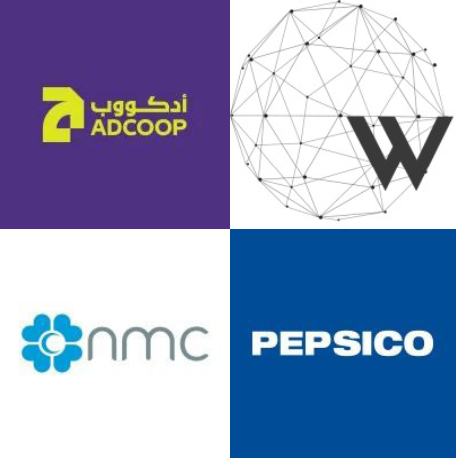10:00
-
- Understanding COP29 targets
- Key barriers to achieving the targets
- Innovative tools to help reach COP29 targets
10:25
-
- Optimizing transportation and routes
- Transitioning to electric and low-emission vehicles
- Implementing sustainable packaging and warehouse practices
10:50
-
- Build Resilience Through Sustainability: Learn how resilient strategies strengthen supply chains against disruptions to ensure food security in the region.
- Tackle Regional Volatility: Identify vulnerabilities—from climate impacts to geopolitical shifts—and bolster food availability.
- Enable Collaborative Solutions: Explore scalable partnerships, policies, and technologies that enhance both sustainability and resilience.

11:15
-
- Prioritising the transition to clean energy sources
- Technological innovation and energy storage solutions
- Policy support and corporate commitments
11:40
-
- Creating Inclusive leadership development programs
- Highlighting Women’s impact on innovation
- Fostering a supportive workplace culture

12:30
12:55
-
- The trends in methods and motivations for sustainability implementation
- The barriers to sustainability
- Analysis of Aurora Insights novel datasets on sustainable supply chains

13:20
-
- Embedding excellence frameworks into intralogistics operations for seamless and effective processes
- Fostering innovation and prioritizing continuous improvement as essential elements of operational success
- Establishing sustainability as a core pillar to enhance long-term efficiency and resilience

13:45
-
- Prioritizing supplier transparency and ethical standards
- Supporting environmentally responsible suppliers
- Long-term partnerships for sustainable practices
14:10
-
Session details to follow

14:35
-
- The importance of ethical labour practices and human rights in sustainable supply chain management
- Exploring strategies for monitoring and assessing compliance with labour standards
- The role of technology in enhancing transparency and accountability
15:00
-
- Understanding tradeoffs in decision-making between sustainability and resilience
- Which approaches to address tradeoffs between sustainability and resilience
- How to turn tradeoffs into reinforcing relationships

10:00
-
- Understanding nearshoring: local sourcing and shorter supply chains
- Strategies for effectively implementing local sourcing initiatives
- Environmental benefits and economic impacts of nearshoring
10:25
-
- Micromobility is rapidly expanding in transportation and logistics due to increased sustainability awareness, public health concerns, and its potential to improve business profitability and user satisfaction.
- By providing an alternative to high-emission vehicles, micromobility supports sustainability, reduces congestion, improves efficiency, and enhances accessibility and equity in urban areas.
- This paper examines the major trends in micromobility growth, addressing implementation challenges, technological advancements, and its broader impact on transportation and logistics

10:50
-
- Sustainable materials & manufacturing
- Circular economy and waste reduction
- Consumer engagement and transparency

11:15
-
Session details to follow
11:40
-
Session details to follow

12:05
-
- PaaS vs traditional ownership models
- How PaaS encourages sustainable design practices, extends product lifecycles, and promotes resource efficiency
- Challenges and strategies for transitioning to PaaS models
12:30
12:55
-
- Last-mile delivery and its significance in the e-commerce supply chain
- Innovative solutions and successful case studies in sustainable last-mile delivery
- Regulatory considerations and consumer expectations impacting last-mile delivery strategies
13:20
-
Session details to follow
13:45
-
- Understanding the role of digital passports within supply chains
- How digital passports enhance traceability, transparency and visibility
- Industry case study
14:10
-
- Understanding carbon offsetting
- Carbon offsetting vs carbon reduction
- Challenges and criticisms of carbon offsetting





)

)

)
)
)



